MAPPA Lab
Digital Methodologies APPlied to Archaeology
MAPPA is a Laboratory of the Department of Civilisations and Forms of Knowledge of the University of Pisa, Italy. It develops digital Methods APPlied to Archaeology and among the other things, it deals with Open Data, Data Analysis, Artificial Intelligence and GIS.
Archaeological methods and Digital archaeology
Archaeology is intrinsically digital because it makes extensive use of digital technology, but more radically, unlike other disciplines, archaeology operates from the bottom up, building its interpretation starting from fragments of the (more or less recent) past rather than starting from the whole and breaking it down. Theory, fieldwork, and digital methods are the three pillars of archaeology. Acquisition, collection, preservation, analysis, and data accessibility have become the essence of archaeology itself, with its epistemological and hermeneutical aspects.
Contemporary archaeology
The study of the contemporary world through the lens of archaeology was first established at the end of the 70s and beginning of the 80s. The early debate focused on the idea that archaeology should investigate the phenomena of “our” contemporary society, taking distance from the ethnoarchaeological approach which aimed at building replicable models, useful for the interpretation and understanding of ancient societies. However, in the 2000s, the birth of the discipline was formally sanctioned: contemporary society became a valuable target for archaeological research.
Environmental Archeology
The essence of environmental archeology is an horizontal approach to the study of human communities and their relationships with non-humans, within their ecological niches. Rooted in the theoretical framework of political ecology, environmental archeology is based on the combined and diachronic analysis of environmental proxies that allow us to define the relationships between the various agents in ecological systems.
Archaeological Open Data
In a discipline based on destructive methods, the lack of information sharing not only inhibits research, but also represents a loss of irreplaceable cultural and historical knowledge. The MAPPA Laboratory has always embraced the Open philosophy and boasts the creation of MOD, the first Italian Open-Data repository.
Projects
The MAPPA Laboratory promotes and coordinates interdisciplinary projects at national and international level.
A team of specialists, together with operators and professionals from other disciplines, leads projects strongly innovative ranging from spatial analysis, digital archeology to Big Data and the application of deep learning systems to archeology.
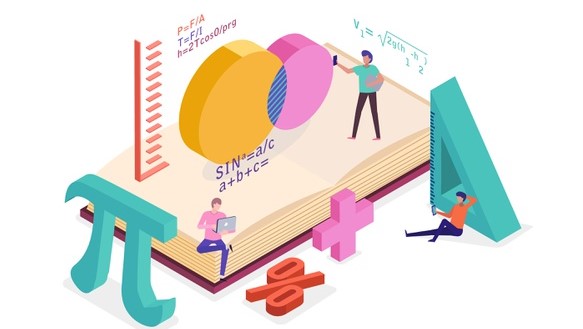
Registration, management and mathematical analysis of archaeological data
Analyze the transformations of the territories over the centuries by crossing the archaeological, historical, geological and geomorphological sources. Understanding the spatial organization and zoning of historical cities that overlapped over time and that today are buried or only partially visible, to create predictive maps of archaeological potential through the use of GIS tools and numerical analysis processes. Interdisciplinary approaches for the evaluation of archaeological potential: the MAPPA laboratory has a great tradition of research in the archiving and categorization of archaeological data, up to their analysis through GIS tools and mathematical/statistical methods, aimed at the predictive calculation of archaeological potential.

Archaeological Big Data
Big Data allow us to learn things impossible to understand using small amounts of data, thanks to the potential offered by software, hardware and algorithms. Their use requires a new archaeological approach: managing large amounts of data, accepting complexity, moving from causality to correlation. Big data inform, expose schemes for archaeological interpretation, are a resource and a tool: data mining, text mining, data visualization, quantitative methods, image processing, etc. help to understand complex archaeological information. Big Data open up new and unprecedented opportunities to read the great historical phenomena, allowing us to re-establish the social role of archeology.

Communication, dissemination and teaching of archaeological data
The MAPPA Lab has always paid attention to communication planning, developing strategies aimed at reaching different public targets in order to facilitate the understanding of scientific concepts and encourage collaboration with researchers outside the laboratory. Thanks to the use of different media, communication tools, and the collaboration with professionals in various sectors, MAPPA Lab carefully plans communication and dissemination for each research project.
Archaeological impact assessment
The MAPPA laboratory guarantees a solid experience in the elaboration of ARCHeological Impact Assessment (VIArch), carried out through the integrated approach of archaeological methodologies and techniques: from bibliographic and archive research to aerophoto interpretation, from stratigraphic readings to analysis with GIS software.
MAPPALab team will attend next AEA in Tarragona
From 24 to 26 November 2023, we will participate in the 43rd conference of the Association for Environmental Archeology on the theme Telling Environmental Archeology Stories organized by the Landscape Archeology Research Group (GIAP) of the Catalan Institute of...
Initiatives promoted by the University of Pisa to reflect, with many different perspectives, on the migration issue.
It has been ten years since the tragedy of October 3, 2013, along the coasts of Lampedusa. 368 victims. In 2016, the establishment of a national day of Memory and Hospitality, but even today, we still face extreme difficulty in remembering and welcoming. We are...
MAPPA Lab is organizing the 1st Conference of Archaeology of Contemporary past in Italy!
MAPPA Lab is organizing the 1st Conference of Archaeology of Contemporary past in Italy! The event will be held in Pisa, between November 30 and December 1st, in collaboration with the Department of Humanistic Research and Innovation, University of Bari. Archaeology...
New deadline CFP ALD4
There is still room for lots of new data! ArcheoLogica Data 4 Call For Paper EXTENDED New deadline October, 31st 2023 It is possible to send contributions (in short or long versions) for the General section of the journal related to any archaeological, thematic, and...
Future Archaeology: preserving software and excavation data
22 June 2023 at 11:00 a.m., Gipsoteca di Arte Antica of the University of Pisa (GIARA). Appointment with Roberto Di Cosmo (Founder and CEO of the Software Heritage Project) and Gabriele Gattiglia (Department of Civilisations and Forms of Knowledge, University of...
Do I need it? How much do I need it? Reflections on Artificial Intelligence in Archaeology. Lecture byGabriele Gattiglia at Unisi
The advent of Artificial Intelligence (AI) in archaeology has brought incredible opportunities but also significant challenges. A few years ago, Machine Learning algorithms and Neural Networks were unknown to archaeologists. AI has been used in many archaeological...
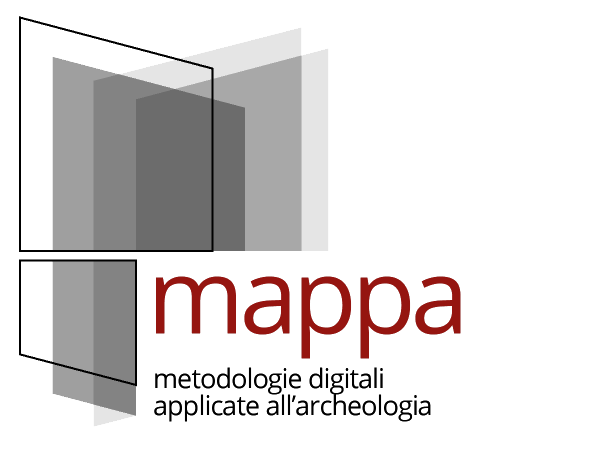

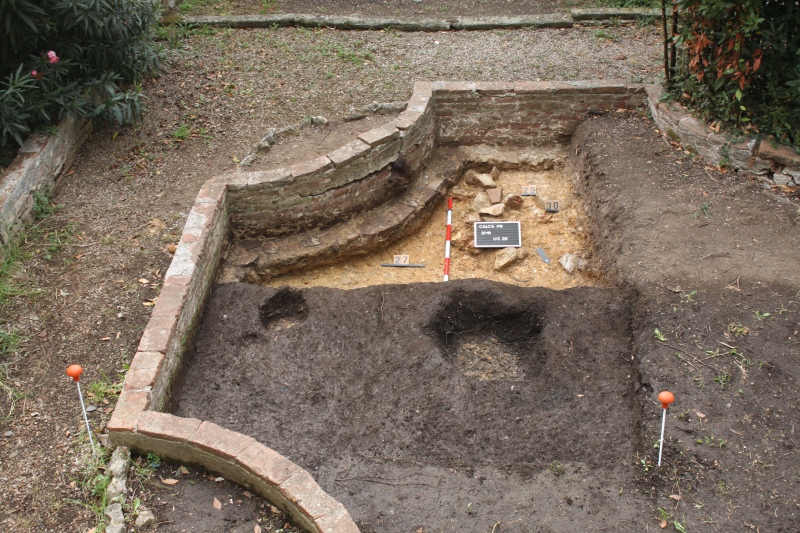
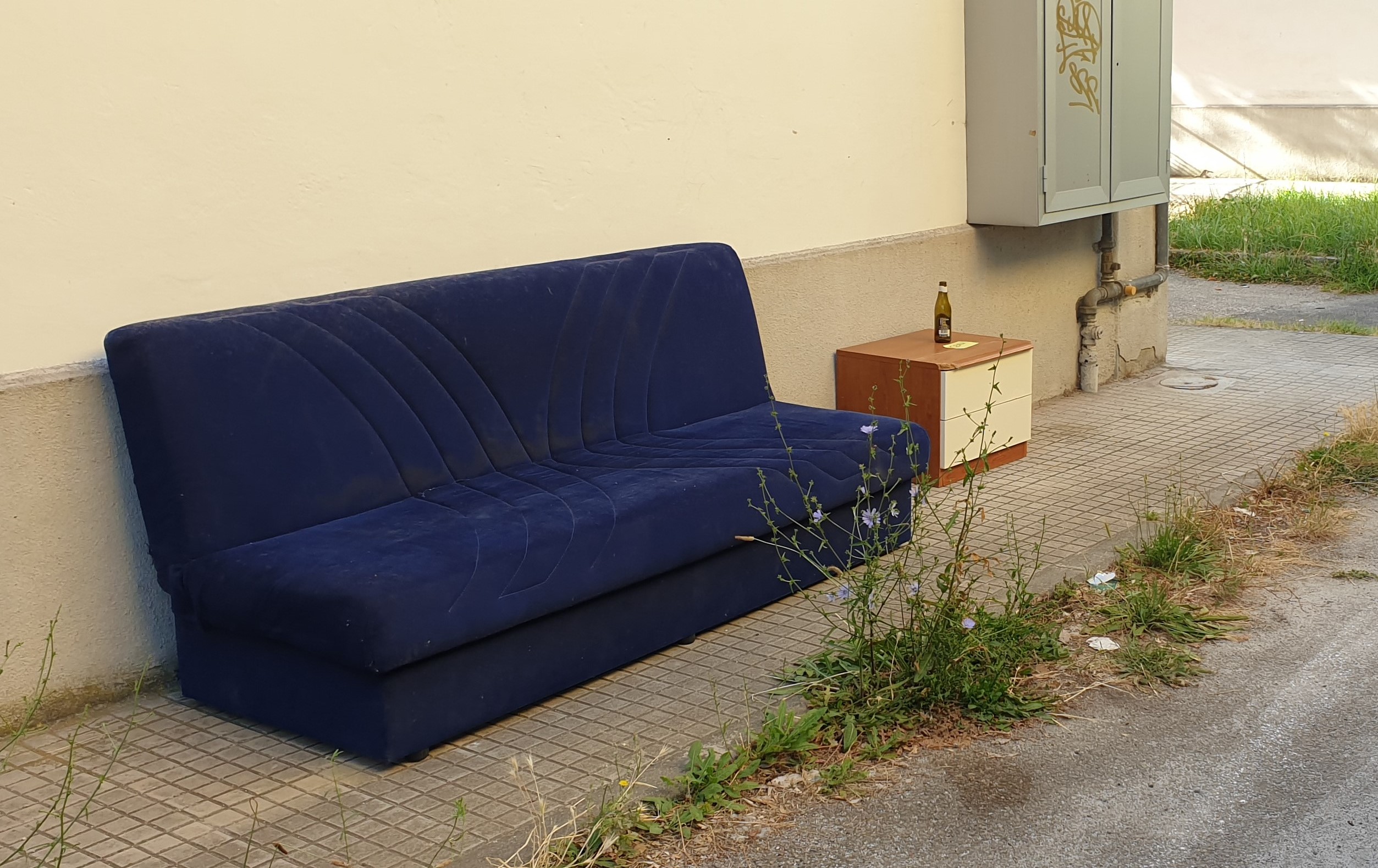


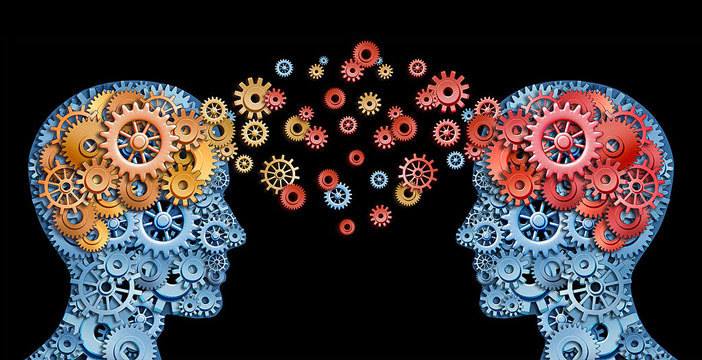
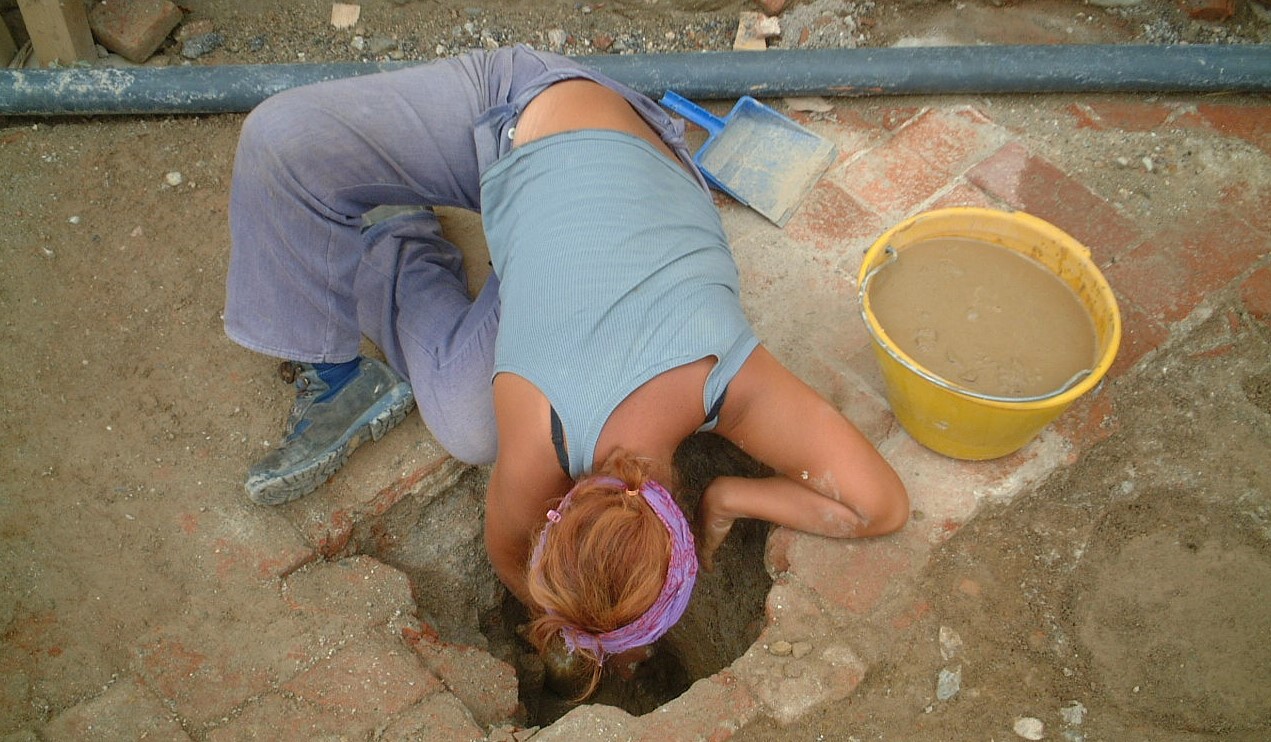
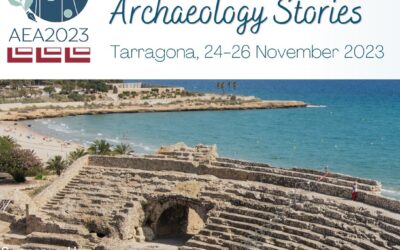
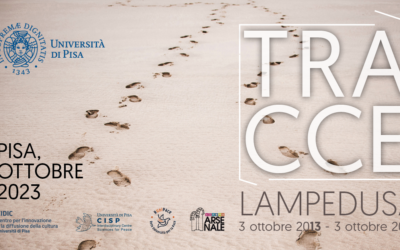
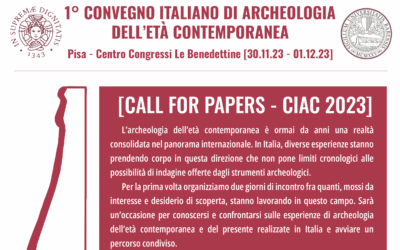
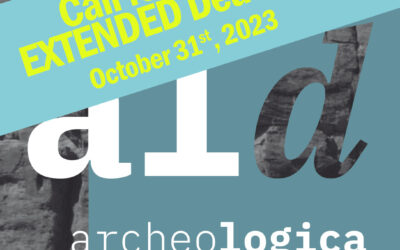
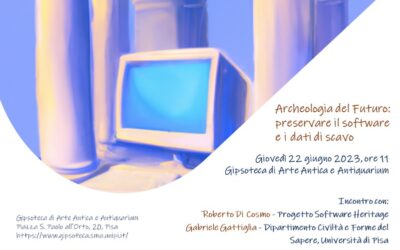

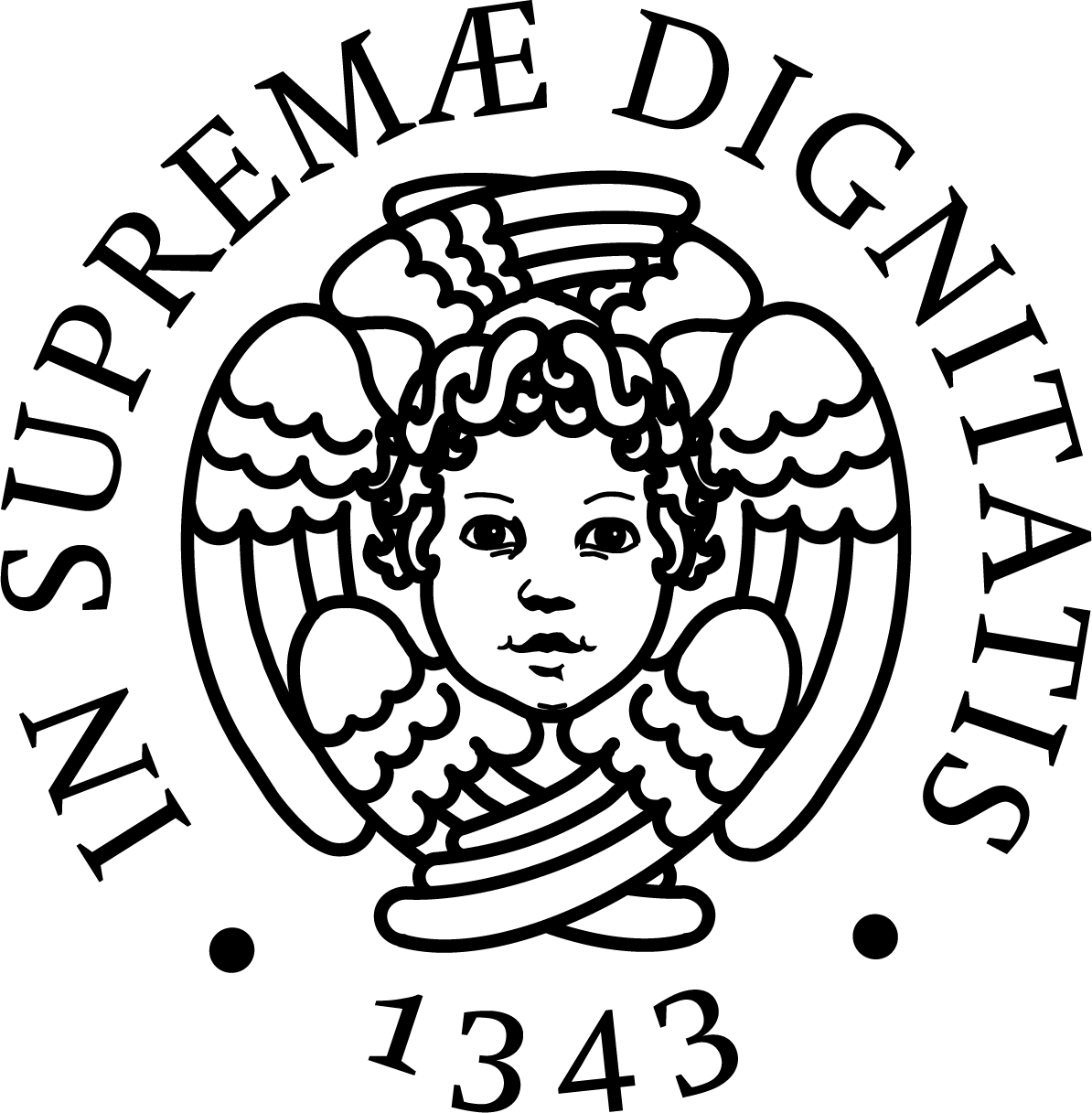
 Laboratorio MAPPA – Dipartimento di Civiltà e Forme del Sapere Università di Pisa
Laboratorio MAPPA – Dipartimento di Civiltà e Forme del Sapere Università di Pisa
